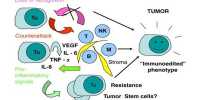Children’s bodies are in high gear, busy growing, developing, and maturing all of the organs and systems that will eventually turn them into adults. As they grow, children have greater energy, water, and oxygen requirements. Younger bodies also absorb nutrients from the foods they eat faster than older bodies. Aside from fueling active young bodies, good nutrition can also help to stabilize energy, sharpen minds, and smooth out moods.
The nutritional requirements of adults and children are similar in some ways. Everyone requires the same basic nutrients – vitamins, minerals, proteins, carbohydrates, and fat. Children, however, require different amounts of these nutrients depending on their age. The American Heart Association (AHA) also provides nutrition guidelines for children, such as recommendations for fat, grains, fruits and vegetables, and calories.
According to nutrition experts, there is no difference between healthy foods for adults and those for children aged 2 and up, with the exception of age-appropriate adjustments in texture and portion size.
When you think about children’s food, the archetype or terminology that we commonly use to describe the food that we feed our children is really a social norm or societal construct that we’ve perpetuated.
Pamela Rothpletz-Puglia
According to a new position paper published by Elsevier in the Journal of Nutrition Education and Behavior, the Society for Nutrition Education and Behavior (SNEB) believes that there is no difference between healthful foods for adults and children aged 2 and older, with the exception of age-appropriate adjustments in texture and portion size.
“When you think about children’s food, the archetype or terminology that we commonly use to describe the food that we feed our children is really a social norm or societal construct that we’ve perpetuated,” says Pamela Rothpletz-Puglia, EdD, RD, School of Health Professions, Rutgers, The State University of New Jersey, Piscataway, NJ, USA.
Kids’ food is operationally defined as food that children aged 2-14 years are likely to consume, either at home or in the community. In the United States, it has long been assumed that children require different types of foods than adults, and many of these foods are highly processed, energy-dense, and high in saturated fat, sodium, and added sugar. A diet high in these foods can have a negative impact on children’s preferences and tastes, exacerbate food neophobia or picky eating behavior, and have long-term consequences for their health.

The authors of the position paper note that the notion that children require different foods than adults appears to have originated during the alcohol prohibition era, when the hospitality industry created children’s menus to compensate for the loss of alcohol sales revenue. Since then, it has been established that children over the age of two can consume the same healthy foods as adults, but children’s food and menus have become a social norm. This social norm persists because ultra-processed foods such as chicken tenders, hot dogs, French fries, and grilled cheese are common in the food environment and highly appealing to children.
Nutrition educators play critical roles in influencing consumer demand and social norms regarding food choices. They can accomplish this by fostering family and community resilience and healthy adaptation to the ultra-processed food environment, as well as by spreading the word that children over the age of two can eat the same healthy foods as adults. They can also work with the media, restaurant industry, and policymakers to improve the unhealthy aspects of the kids’ food archetype by collaborating on health promotion messaging, marketing, menu labeling, and healthy default menu options.
Nutrition educators can promote healthy social and behavioral changes at the individual, family, community, and societal levels by shifting norms about children’s food toward healthy food that both adults and children can enjoy.
“I believe we need to collaborate with communities, the food industry, and policymakers,” Rothpletz-Puglia says. “We need to collaborate and find mutually beneficial solutions.” Encouraging healthy eating habits can have a significant impact on your child’s long-term relationship with food. Good nutritional habits give your child the best chance of growing into a healthy, self-assured adult. Consider how children’s nutrition differs from that of adults and what you can do about it.
















